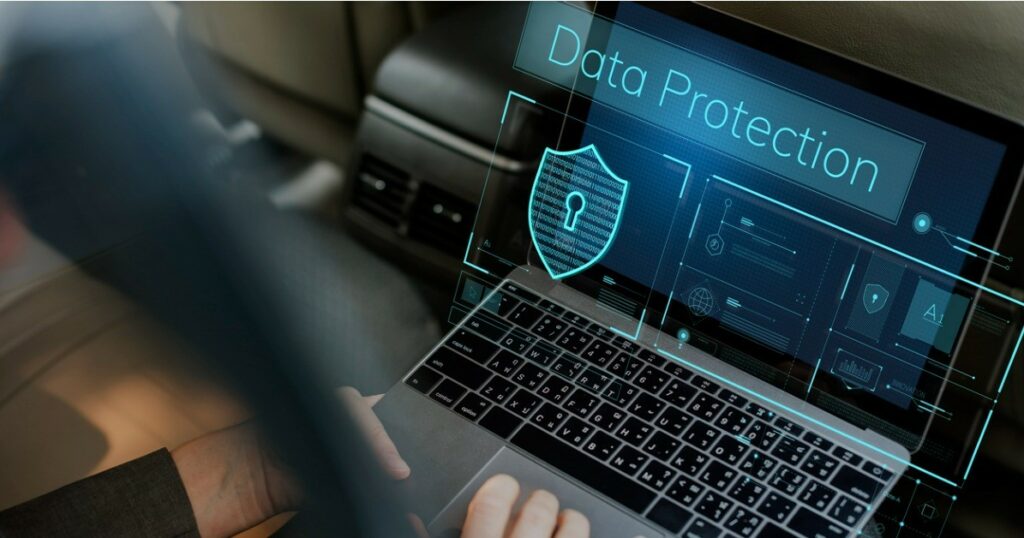Today, the cyber threat landscape is more severe than ever before. Cyberattacks are on the rise, and cybercriminals continue to leverage increasingly sophisticated techniques to infiltrate systems and steal data. For example, just last year, we saw the fourth largest loan-servicing company in the US, Florida-based Lakeview Loan Servicing, fall victim to a data breach that affected more than 2.5 million consumers[1].
One way mortgage lenders can safeguard their data is with encryption. That’s what we’re going to be diving into here.
What Is Considered Great Data Security Management?
Great data security management starts with a team that maps out sensitive information accessed or transmitted within your company. This team should be able to report on a moments notice the latest audit of all files that are considered sensitive, the encryption status of those files, and a report showing which employees have accessed this information. One strategy with Microsoft 365 enterprise licensing is sensitive labels which does exactly that while encrypting the data.
What Is Data Encryption?
Encryption is a digital form of cryptography that converts data into an unreadable format using mathematical algorithms. This means that if an unauthorized party intercepts the data, it would appear as a scrambled mess, and they wouldn’t be able to extract any meaningful information from it. However, when authorized recipients want to access the data, they can do so with their own key that unscrambles the information back into readable text – this is called decryption.
Data encryption is a vital part of data security in the modern world and is especially important for companies that deal with sensitive customer personal information, like mortgage lenders.
Why is Encryption Important?
Today, massive amounts of personal information are managed in the cloud or on servers connected to the internet. For example, it’s nearly impossible for mortgage lenders to do any form of business today without customer personal information ending up in a networked computer system. And when dealing with cloud communication, keeping data safe is paramount.
Moreover, successful data breaches cause significant harm to mortgage lenders in the form of costly fines for non-compliance, other financial impacts, and reputational losses. This is the main reason why encryption is important.
What Files Need to be Encrypted?
Beyond the obvious personally identifiable information (PII) such as names, addresses, and social security numbers, mortgage lenders also must meet data security compliance. This data includes customer personal information relating to income, credit score, family member PII, loan or deposit balances, and more.
Mortgage lenders must ensure the security of customer records, protect against anticipated threats to data security, and protect against unauthorized access to information that could harm customers. Encryption plays a key role in data security management.
Where to Encrypt Data?
Companies can deploy encryption at many levels within their infrastructure. For example, data encryption at the database level has some unique advantages, including better integration with other database access controls and encryption key management. This results in fewer security gaps and makes managing data security more straightforward. However, organizations can also encrypt data at the application level, essentially encrypting data before it enters the database. Application level encryption provides a more granular level of control, and many experts consider it the more secure way of protecting data.
The Importance of Email Encryption
Email is a huge part of communication with mortgage applicants, and that is unlikely to change anytime soon. However, email poses some significant security threats. Email can be intercepted in transit, unsecure connections to mail servers are common, and hackers can impersonate legitimate parties with relative ease. One alarming study found that 70% of loan officers allowed applicants to send tax documents and other financial data via unencrypted email attachments[2].
How to Secure Your Computer from Unauthorized Access
To stop unauthorized access to your computer you must enable BitLocker. BitLocker comes with Microsoft Windows if configured correctly encrypts everything on your computer. Without this feature being configured anyone with physical access to your computer can copy all your data, even if you have a password. That’s because I can plug your hard drive into a $20 device you can buy on Amazon which lets me see all your information. The only way to stop this is if your computer is encrypted.
Final Thoughts
Encryption isn’t a nice-to-have data security feature but a necessity for mortgage lenders in the digital age. Encrypting your computer systems helps prevent data loss and keeps nefarious actors locked out.


